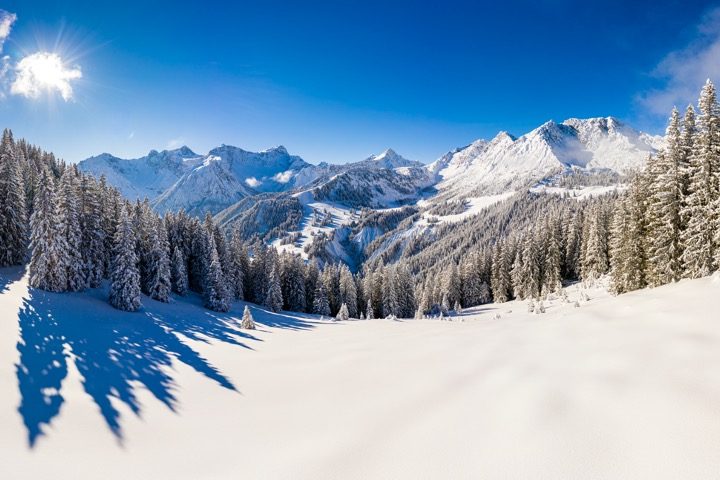
On Sunday, the final runs of the Alpine Ski World Cup championships in Saalbach, Austria, had to be canceled due to extreme wind and snow. The Men’s Downhill event, considered by many to be the most exciting event on the Alpine circuit, had to be called off because of weather conditions.
The start of the event was pushed back several times as organizers worked to put the course into reasonable shape, but eventually event officials called it off.
“Unfortunately due to the present weather situation with wind and snowfall affecting the track conditions, to insure the safety of the athletes, today’s Men’s DH [has] been cancelled,” FIS Alpine announced on X.
Superstar Swiss skier Marco Odermatt was declared the winner of the event and took the overall downhill championship for the season — the globe — edging out Cyprien Sarrazin of France, who finished 42 points behind after the cancellation.
Both of the top racers took the odd end to the season in stride.
“For sure it’s very strange to win a globe after such a tight battle with Cyprien,” said Odermatt. “We both would have been ready for every decision. We saw it on the inspection. I’m not sure safety can be guaranteed. It’s a good decision for sure from my side, but I think as well for the sport it was a fair decision. But we would have liked to battle it out.”
The runner up also took the cancellation in stride. “For safety it was a good decision, so there is no problem,” said Sarrazin. “I wanted to have a fair race and a safe race and that’s how it is. We will enjoy tonight because it was an amazing season.”
In this age of “global boiling,” isn’t snow supposed to be a thing of the past?
It’s not the first event of the Alpine ski season that had to be canceled because of too much snow. Heavy snow forced the cancellation of a women’s event at St. Moritz in December. Also canceled due to snow and wind was an event scheduled to be run on the Matterhorn in November. And heavy snow forced the cancellation of a women’s World Cup event in Italy at Val di Fassa in February.
It’s just a little confusing, because the climate experts at The Guardian assured us earlier this month that the “era of plentiful snow may be over due to [the] climate crisis.”
“We are probably past the era of peak ski seasons,” claimed University of Waterloo scientist Daniel Scott. “Climate change is an evolving business reality for the ski industry and the tourism sector.”
According to Scott, skiers should expect much shorter seasons going forward because of climate change’s effects. Keeping skiing alive at all depends upon how closely mankind is able to keep emissions at the levels agreed upon in Paris in 2015.
“How much shorter depends on the ability of all countries to deliver on their Paris climate agreement emission reduction commitments and whether global warming temperatures are held below 2C (3.6F),” Scott explained.
In a study published on Taylor & Francis Online, Scott and fellow researcher Robert Steiger predicted that ski seasons in the United States in coming decades will be 14-33 days shorter on the low end, and 27-62 days shorter on the high end, depending on how much we can cut fossil fuel emissions.





